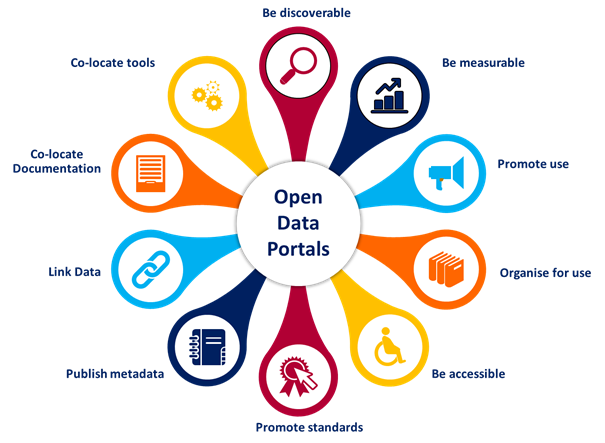Data are considered to be “open” if anyone can freely access, use, re-use and redistribute them, for any purpose, without restrictions.
AFRICA – South Africa: African Development Bank Group Open Data (South Africa)
__§_southafrica.opendataforafrica.org
AFRICA – South Africa: South African Higher Education Data (Centre for Higher Education Trust) Education
__§_chet.org.za
____South African Higher Education Data|Education
AFRICA – South Africa: City of Cape Town Open Data Portal (City of Cape Town)
__§_web1.capetown.gov.za
____City of Cape Town
AFRICA – South Africa: Council For Geoscience (South Africa)
__§_geoscience.org.za
AFRICA – South Africa: Department Of Basic Education (South Africa)
__§_education.gov.za
AFRICA – South Africa: Departmentof Environmental Affairs (Departmentof Environmental Affairs) Arcgis OpenData Portal
__§_data.dea.opendata.arcgis.com
____Arcgis OpenData Portal
AFRICA – South Africa: Esri South Africa Professional Services (Esri South Africa Professional Services) Arcgis OpenData Portal
__§_data.esriza-ps.opendata.arcgis.com
____Arcgis OpenData Portal
AFRICA – South Africa: OpenUp Open Data Portal (OpenUp (ex-Code4SA)) Business, Education, Fun, Government, Health, Personal, Transport
__§_data.code4sa.org
____OpenUp Open Data Portal|Business, Education, Fun, Government, Health, Personal, Transport
AFRICA – South Africa: South Africa Open Data (South Africa)
__§_opendataportal.cloudapp.net
AFRICA – South Africa: South African Weather Service (South Africa)
__§_weathersa.co.za
AFRICA – South Africa: Statistics South Africa (South Africa)
__§_beta2.statssa.gov.za
AFRICA – South Africa: Univerisity Of Kwazulu-natal – African Centre For Population/health Studies (South Africa)
__§_africacentre.ac.za
other open data portals
The key features of openness are:
Availability and access: the data must be available as a whole and at no more than a reasonable reproduction cost, preferably by downloading over the internet. The data must also be available in a convenient and modifiable form.
Reuse and redistribution: the data must be provided under terms that permit reuse and redistribution including the intermixing with other datasets. The data must be machine-readable.
Universal participation: everyone must be able to use, reuse and redistribute — there should be no discrimination against fields of endeavour or against persons or groups. For example, ‘non-commercial’ restrictions that would prevent ‘commercial’ use, or restrictions of use for certain purposes (e.g. only in education), are not allowed.
Open Data initiatives, activities and portals:
http://bit.ly/open-data-map
